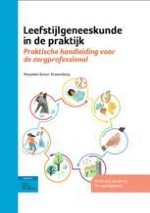2023 | OriginalPaper | Hoofdstuk
12. Gedrag
Auteur : Marjolein Streur-Kranenburg
Gepubliceerd in: Leefstijlgeneeskunde in de praktijk
Uitgeverij: Bohn Stafleu van Loghum
2023 | OriginalPaper | Hoofdstuk
Auteur : Marjolein Streur-Kranenburg
Gepubliceerd in: Leefstijlgeneeskunde in de praktijk
Uitgeverij: Bohn Stafleu van Loghum
Print ISBN: 978-90-368-2862-8
Elektronisch ISBN: 978-90-368-2863-5
Copyright: 2023
